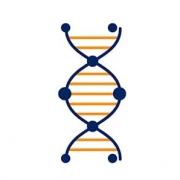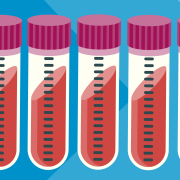Detecting cancer predisposition: Finding the balance
This week, we weigh up the potential advantages and challenges of wider genomic testing for identifying cancer
As we learn more about how cancer develops, the role of prevention in care is becoming increasingly important. Recent initiatives set out in the NHS Long Term Plan and the 2019 consultation, ‘Advancing our health: prevention in the 2020s’, reinforce this commitment to improving cancer screening in the UK.
Earlier this year, new research from the Institute of Cancer Research (ICR) in London has explored the potential for wider panel testing to identify more people with genomic variants that are likely to cause cancer. But what are the benefits of and barriers to mainstreaming these tests?
Cancer genomics: the challenge
Cancers themselves are not inherited, but we can inherit gene variants that make us more likely to develop them, and these variants can run in families. These gene variants are individually rare but genomic predisposition is believed to contribute to between 5% and 10% of cancers.
Perhaps the most well-known gene variants are in BRCA1 and BRCA2, which are associated with increased risk of breast, ovarian, and prostate cancers.
Around one in every 500 people has a BRCA1 or BRCA2 variant, so it has not been practical (or, until recently, even possible) to test everybody for these variants. Instead, tests have been offered to people who have multiple family members affected by cancer as they are most likely to be affected.
As the cost of genomic tests and sequencing continues to fall, it could soon become affordable to test more people, however other factors such as follow-up appointments and genetic counselling must be factored in. Clinicians must also consider ‘variants of unknown significance’: where there is a genetic change in a gene that can be linked to cancer, but not enough evidence to show whether that exact change increases a person’s risk of developing it.
Widening the net
Researchers at the Institute of Cancer Research in London looked at records from over 150 patients who were referred for private multi-gene panel cancer tests. These tests looked for variants in genes that are associated with increased cancer risk.
They found that around 10% of the patients had a variant classified as harmful or probably harmful, and that approximately half of this group would not have qualified for genetic testing on the NHS.
“Providing wider access to gene testing on the NHS would pick up significant numbers of people with high-risk cancer mutations, who could benefit from screening, monitoring or preventive treatment,” said ICR clinician and scientist, Professor Rosalind Eeles.
The authors also point out that, although these results are promising, deciding who to test will still be a fine balancing act:
“We feel there is a strong case to widen access to cancer gene testing on the NHS. There is however also a trade-off to doing so, through an increased chance of ambiguous findings which need follow-up and can worry patients unnecessarily,” said Professor Eeles.
“We need larger studies to work out exactly where the revised NHS threshold for testing should be, to maximise the benefit in people at high risk of cancer, while minimising the burden on patients and the NHS of follow-up investigations.”
–









